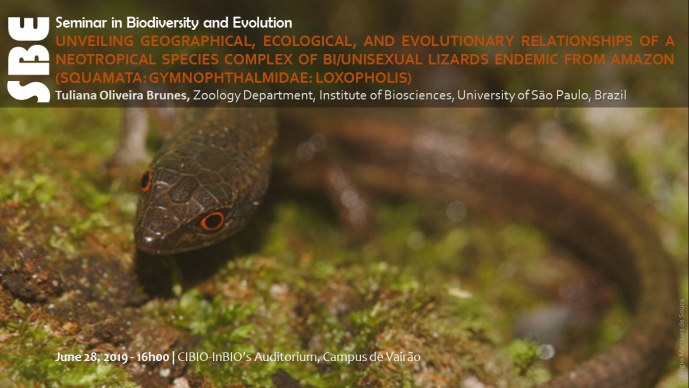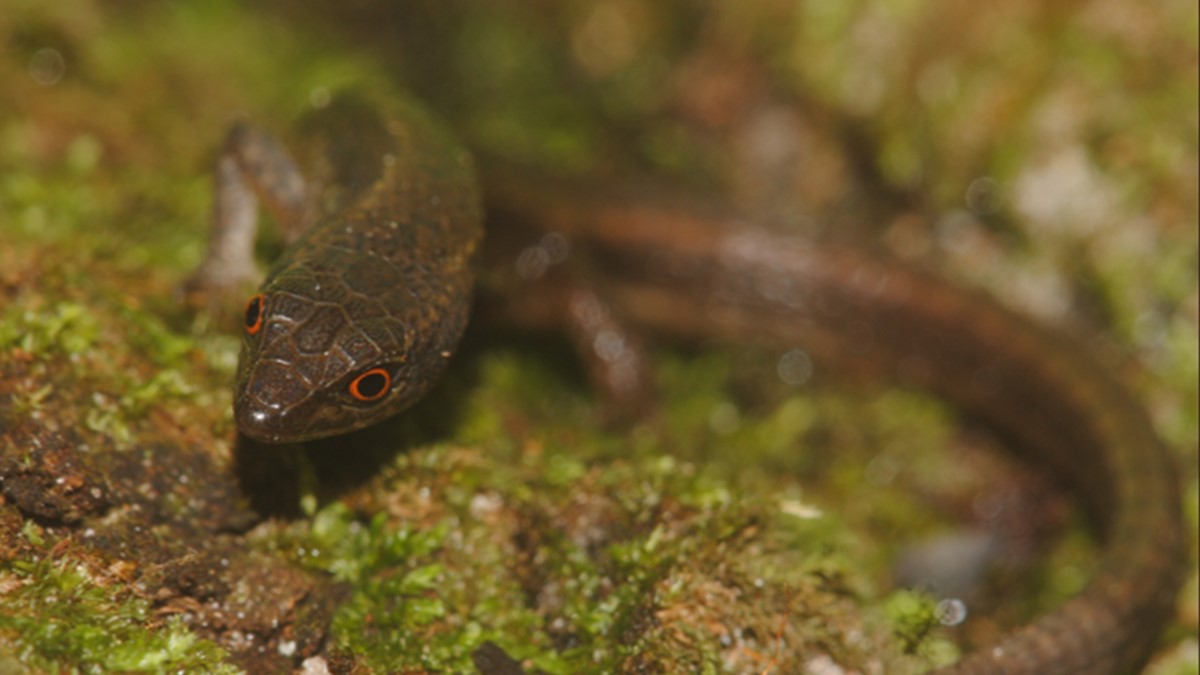UNVEILING GEOGRAPHICAL, ECOLOGICAL, AND EVOLUTIONARY RELATIONSHIPS OF A NEOTROPICAL SPECIES COMPLEX OF BI/UNISEXUAL LIZARDS ENDEMIC FROM AMAZON (SQUAMATA: GYMNOPHTHALMIDAE: LOXOPHOLIS)


Neotropical lizards of the Loxopholis percarinatum complex are intriguing because they exhibit unisexual/bisexual reproduction and include species with different levels of ploidy (2n and 3n). Some paradigms about the origin and impacts of sex-independent reproduction have been overturned lately. At the same time, mechanisms behind the origin of parthenogenesis in L. percarinatum complex have been recently clarified. In this seminar, I will briefly present the evolutionary history of this uni/bisexual complex of lizards originated through an ancient process of hybridization, older than the other cases described in the literature. In addition, I’ll also show the signs of recent hybridization between parthenogenetic females and males from the maternal ancestral species that we found in a region located in the west of the Negro River. Taken together, these results brought some challenges related to the inference of the level of ploidy of individuals. To solve these questions, we are now using cytogenetic and NGS data, specifically, thousands of unique nucleotide polymorphisms (SNP's) detected by the ddRAD-seq method. In the end, I’ll also show some preliminary results based on present and past Species Distribution Modelling in order to detect adequability areas for the presence of these species over time.
Tuliana O. Brunes is a post-doctoral fellow of the Zoology Department from the Institute of Biosciences of the University of São Paulo since 2016. She earned her Master and Ph.D. degree in CIBIO-InBIO, (University of Porto) in 2009 and 2014, respectively. During this time, Dr. Brunes’ work was focus on studying the phylogeny, phylogeography, and population genetics of tree frog’s species from Phyllomedusa burmeisteri group, endemic from the Atlantic forest, using multiple molecular markers coupled with Ecological Niche Models for understanding the mechanisms involved in speciation process of species from Atlantic forest. Nowadays, her work is mainly focus on speciation of Amazon lizards, however, she is still a Collaborator Researcher of CIBIO being part of TropBio group studying the genetic basis of coloration in Phyllomedusa (FCT/FAPESP).
[Host: Fernando Sequeira, Tropical Biology]
Image credits: Sérgio Marques de Souza